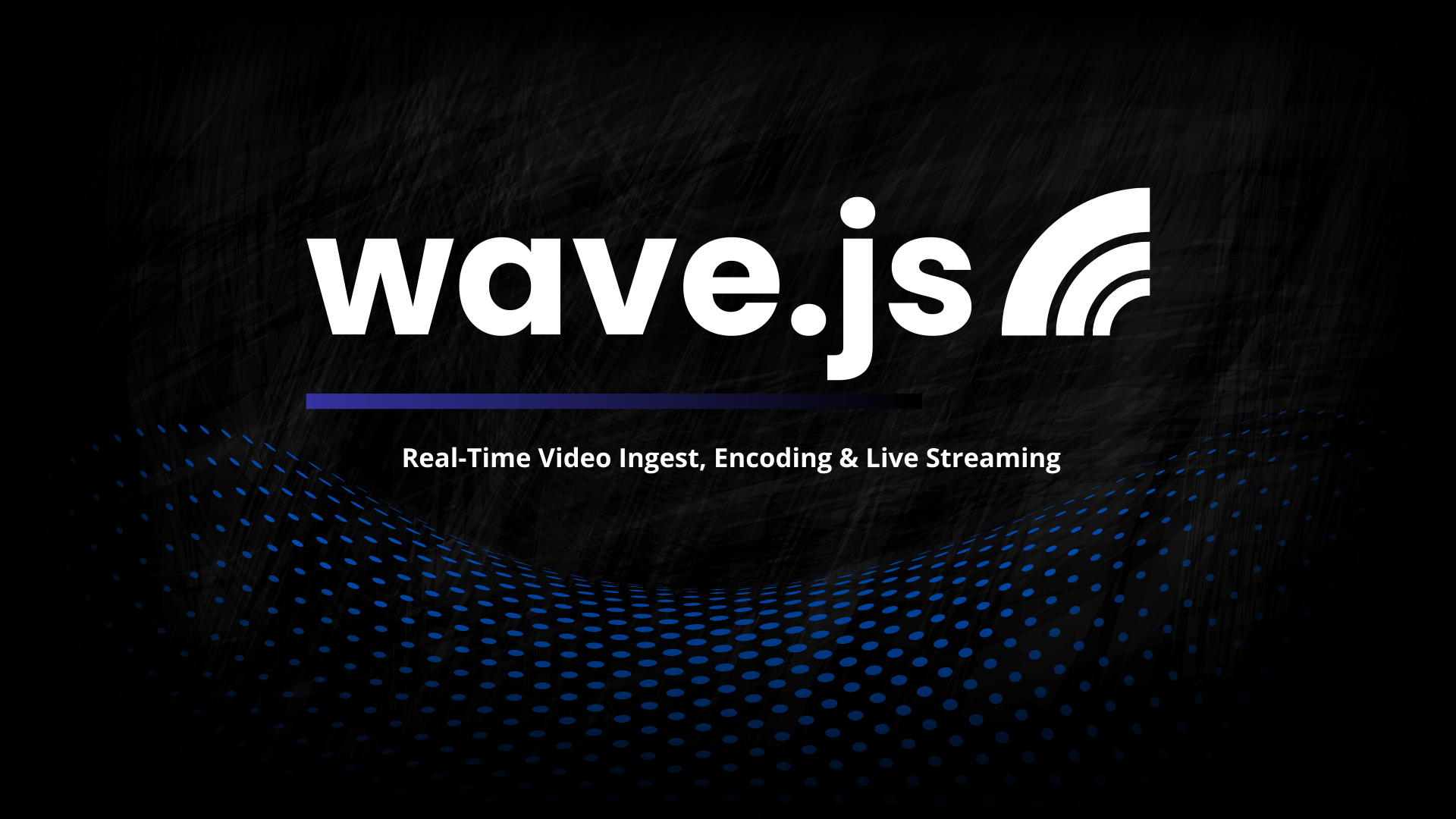

v1.0.0 Now Available!

wave.js is a scalable video live streaming framework, with multi-stream support for real-time RTMP ingest, encoding to HLS and MPEG-DASH, and low-latency live stream delivery. Targeted at helping dev teams deploy live streaming applications with greater ease and efficiency, wave.js is an open source server framework for Node.js that features customizable configuration options to tailor video and audio live streams to meet the needs of any professional dev environment.

wave.js supports real-time ingest of multiple synchronous streams of RTMP over a single port and is ideal for use with OBS Studio, one of the leading tools used by Twitch streamers and content creators.
At launch, wave.js features powerful real-time encoding to popular streaming protocols HLS and MPEG-DASH via Ffmpeg’s open source video library. Users can configure encoding settings – including audio and video bitrate and codec – ensuring streams are delivered in whatever format required.
Developed with scalability in mind, wave.js is capable of ingesting and outputting a high volume of concurrent live streams.
Chunking live video into smaller segments expedites real-time encoding and delivery, enabling low-latency live streams. Automatic video chunking is managed by Ffmpeg, with configuration options for dev teams to manage chunking by length or size.
Users can configure file location to save video and audio streams locally or on the cloud, for on-demand playback after live streams have ended.
Stay up-to-date on live stream progress and performance, with in-depth, detailed logging. View connected ports, current stream paths and processes, warnings, and error messages in real-time.

To get started, install the npm package:
npm i @wave.js/wave.js
Once you've installed wave.js, read the documentation to configure your live stream and get up-and-running.
